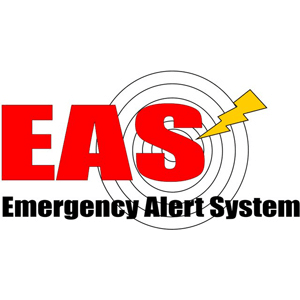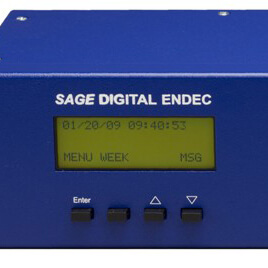EAS and Amber Alerts
Statewide Tornado Drill: Wednesday, March 23
Gov. Gretchen Whitmer has declared March 20-26 to be Michigan’s Severe Weather Awareness Week. Broadcasters and Emergency Management partners statewide are encouraging Michiganders to conduct a statewide tornado drill at 1 p.m. ET Wednesday, March 23. Broadcaster participation will include a EAS Required Monthly Test at 1 p.m. on Wednesday, March 23. As with all…
Read MoreMichigan National EAS Test Summary
On August 11, the FCC and FEMA conducted the National Period Test (NPT) of the Emergency Alert System, using the “daisy chain” exclusively throughout the country, starting with the Primary Entrance Point stations (PEP) as well as additional feeds through NPR, Premiere Radio Networks and Sirius/XM. Here in Michigan, WJR-AM (Detroit), the designated PEP for…
Read MoreFCC Reminds Television Stations of EAS Obligation to Persons with Disabilities
On July 21, the Enforcement Bureau of the Federal Communications Commission (FCC) issued an advisory to remind Emergency Alert System (EAS) Participants of the requirements to ensure that EAS alerts are visually and aurally accessible. This advisory is targeted at television broadcast stations, analog and digital cable systems, wireless cable systems, wireline video systems and…
Read MoreSage Issues Update and NPT Advisory
Sage Alerting Systems has released a bulletin regarding their Digital ENDEC model 3644 to users in the United States, covering two issues: A) FEMA Signing Certificate updates: Action required before August 21, 2021. A signing certificate used by FEMA to validate CAP alerts will expire on Aug 21, 2021 at 21:00:00 UTC. Sage has released…
Read MoreFCC Releases New EAS Handbook
The 2021 version of the FCC’s Emergency Alert System Operating Handbook is now available, replacing the 2017 version. FCC rules require that a copy of the Handbook be maintained by stations and be immediately available to staff responsible for authenticating messages and initiating actions. As part of the preparations for the upcoming August nationwide EAS…
Read MoreFCC Approves Repeating EAS Alerts
The Federal Communications Commission on Thursday (6/17) unanimously approved several updates to its rules governing the Emergency Alert System (EAS). The FCC concluded alert repetition can be integrated into alert origination software as an automated function. That will allow the alert originator to program how, when, and for which EAS event codes it will need…
Read MoreSBE: Stations Should Note Reason for IPAWS April 26 Required Weekly Test Failure
The Society of Broadcast Engineers (SBE) has issued helpful guidance to stations about what to do in light of the failure of an IPAWS Required Weekly Test on Monday (4/26): When FEMA issues an IPAWS test or alert it includes a “signature certificate.” This operates similar to a password for accessing different sites or files…
Read MoreFCC Looks to Make EAS Updates as Recent Alerts Bring Added Urgency
Following false weather service alerts that went out this month across Kansas and Missouri warning of imminent danger from a tornado that did not exist, Federal Communications Commission Acting Chair Jessica Rosenworcel said Wednesday (3/17) that a system needs to be created to track false emergency alerts so lessons can be learned from the errors,…
Read MoreFCC Issues an EAS Enforcement Advisory
The Federal Communications Commission is reminding broadcasters and other EAS participants of their obligations to comply with the Emergency Alert System rules, including ensuring that alerts are accessible to persons with disabilities. “In reporting on the most recent national level test of the EAS, the FCC’s Public Safety and Homeland Security Bureau noted improvements in…
Read MoreCongress Advances Bill Requiring Radio To Put Some EAS Alerts On Repeat
The lame duck session of Congress has delivered its first move that could directly impact radio. On a voice vote this week, the House passed the Reliable Emergency Alert Distribution Improvement Act or “READI Act” (H.R. 6096). It would, among other things, require radio and television stations to repeat alerts issued by the president, rather…
Read More



